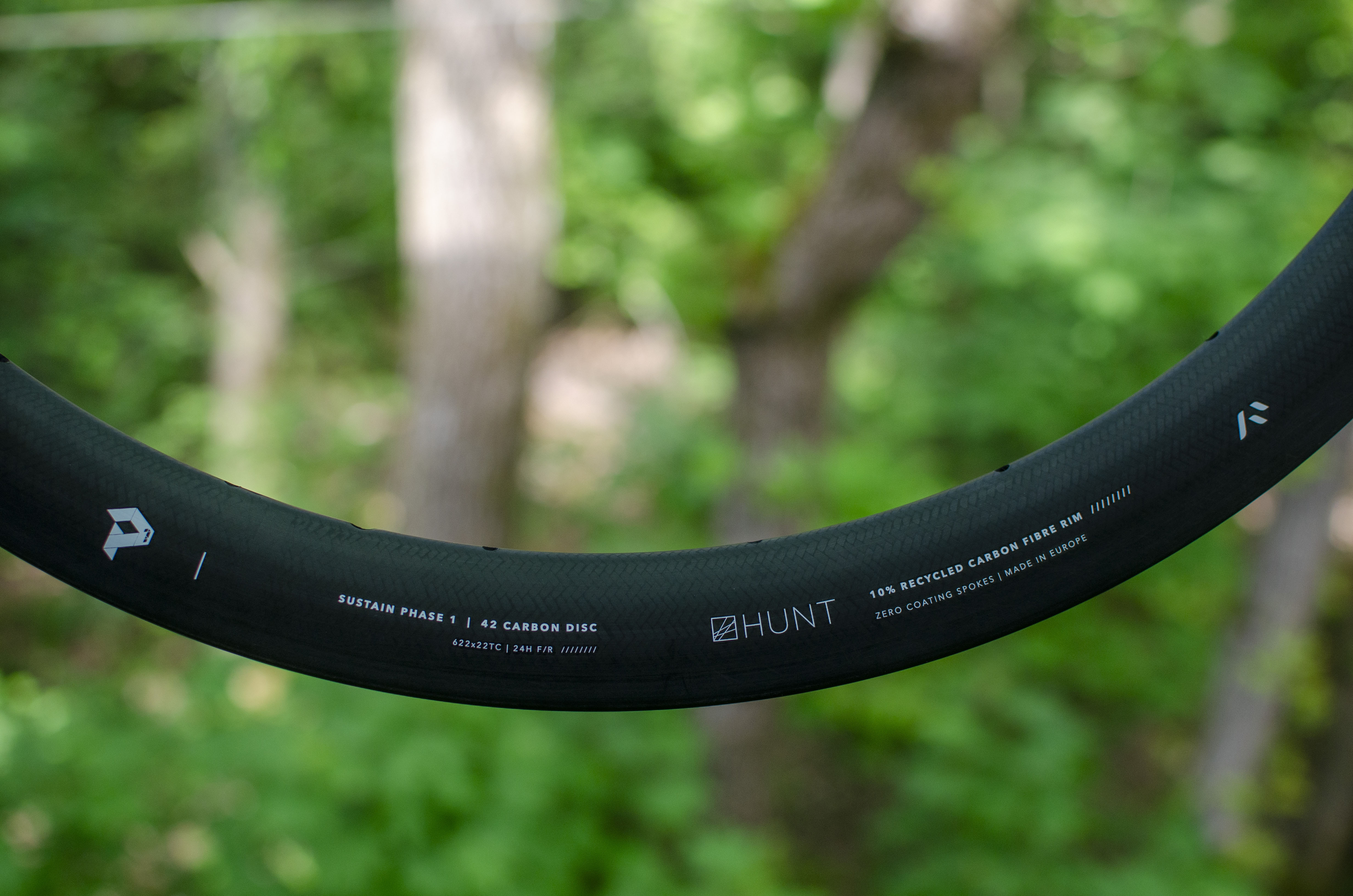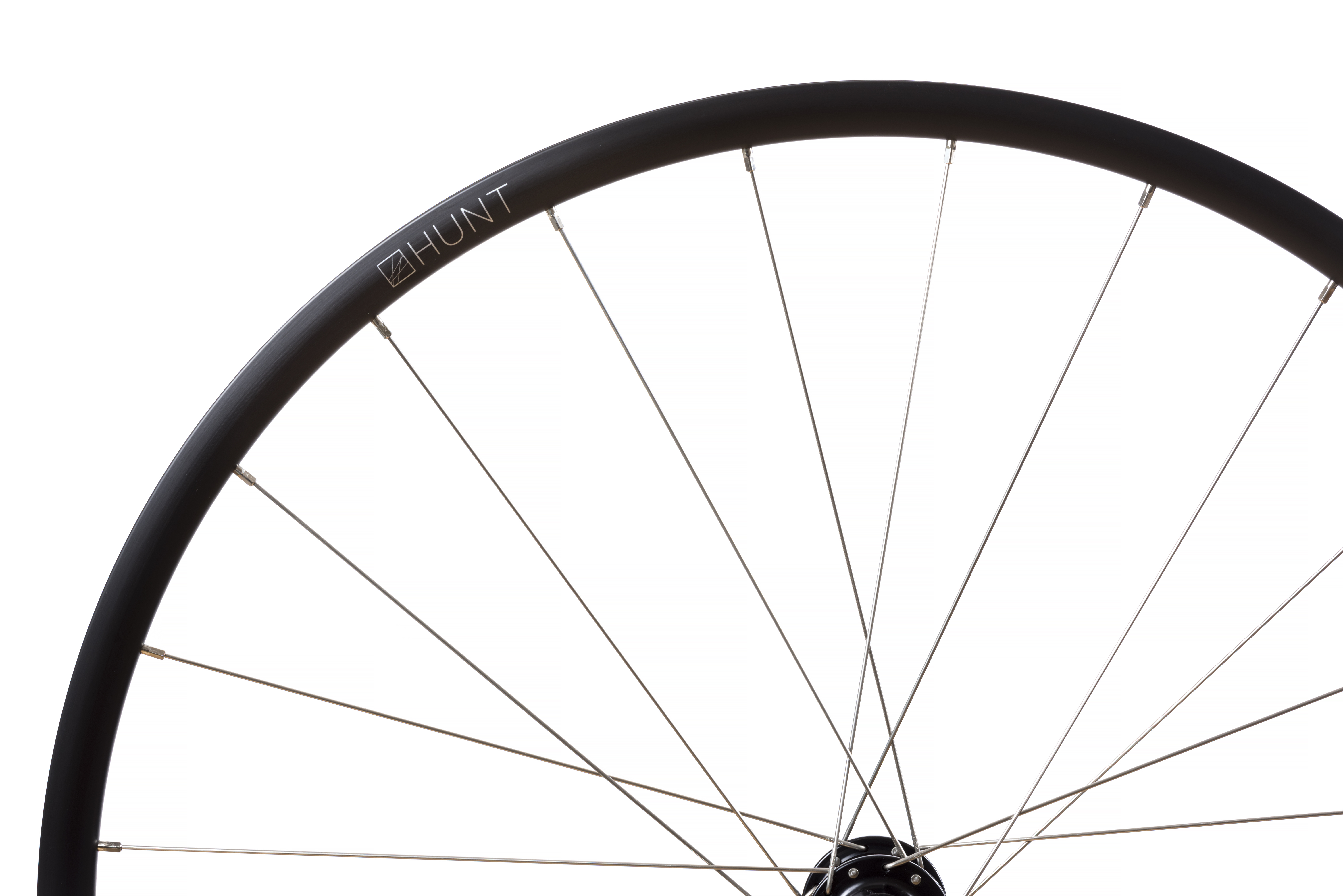Hunt has today unveiled a trio of new wheelsets amid a wider announcement surrounding its plans for environmental sustainability.
In short, this means that alongside a company-wide commitment to meet certain sustainability targets, three of its most popular wheelsets have undergone a redesign that uses recycled materials, less resource-intensive manufacturing processes, sustainability-focused specification choices and shorter transportation distances to reduce the environmental impact.
The trio of products will form the beginnings of the brand’s Sustain range, which will grow as more wheelsets undergo the same process.
The move sees Hunt use a framework set out by the Science Based Targets Initiative (SBTi), the collaborative group between the Carbon Disclosure Project, the United Nations Global Compact, World Resources Institute and the World Wide Fund for Nature. SBTi was founded in 2015, and is set up to provide companies with a clearly-defined path to reduce greenhouse gas emissions in line with the Paris Agreement goals.
The three wheelsets that make up the Sustain collection so far include the 42 Carbon Disc Ti, the Four Season All-Road Disc, and the Trail Wide 29.

42 Carbon Disc Ti
The 42 Carbon Disc Ti is a versatile all-rounder that can handle on-road and off-road terrain. It boasts a 42mm depth, and its internal width of 22mm means it is optimised for tyres between 25 and 35mm.
It is the only carbon fibre wheel to land in the new collection so far, and the new version will be made using 10% recycled carbon fibre.
The latest race content, interviews, features, reviews and expert buying guides, direct to your inbox!
Interestingly, to manufacture the rims, Hunt will use a wax mould, rather than the usual throwaway EPS or silicone moulds or inflatable bladders. Rather than cut out, the wax can be melted, then re-moulded and reused more than 20 times. The construction will also use a unique resin transfer moulding method, rather than ‘pre-preg’ carbon fibre. This means the sheets can be stored at room temperature, saving energy costs. It also means offcuts of carbon aren’t already impregnated with resin, which means less resin is used overall, and the offcuts can be recycled.
The finishing touch to these wheels is a one-piece titanium freehub body, which has the outboard half of the star ratchet moulded directly into place. This makes it lighter, while further reducing waste material.

Four Season All-Road Disc & Trail Wide 29
A derivative of the original Hunt wheel, the Four Season is an affordable alloy wheel that sits 25mm deep, 22mm wide internally, and is also aimed at mixed terrain riding with tyres between 25 and 35mm, though it can happily accommodate tyres as wide as 50mm.
Meanwhile the final wheel to be given the Sustain treatment is the Trail Wide 29, a mountain bike wheel optimised for tyres between 2.2in and 2.6in wide, thanks to its 30mm internal width. The Trail Wide 27.5 isn’t currently undergoing the same treatment, but it’s a safe bet that it will follow.
Both are made using 75% recycled aluminium. 30% is sourced from post-consumer recycling, such as recycled cans. The remaining 45% is sourced from the industrial sector, which offers greater material consistency, and includes CNC shavings or off-cuts.
Notably, all three wheelsets are being given silver spokes and nipples, which Hunt says are more environmentally friendly than anodised black versions.
“While anodising alloy rims and hubs is necessary to protect the surface from wear and improve the longevity of the component, the electrical chemical coating process used to colour-coat black spokes and brass spoke nipples offers no practical or performance benefit beyond aesthetics,” says the brand. As a result, it has opted to save the energy and chemical usage required.
This decision is just one of the steps that make up the wider company initiative to seek accreditation by the SBTi. As part of this agreement, the company will publish an annual report, for which the first will come at the end of 2024.

The Science Based Targets Initiative
The commitment comprises multiple phases, or scopes, which grow in their impact with each step. Scope 1 includes direct emissions from sources owned by the company, such as buildings, vehicles and equipment. Scope 2 extends the requirement to indirect emissions, including the effect of production of electricity that the company uses. The company has committed to reduce these emissions by at least 50% by 2030.
Scope 3 goes further again, extending to the entire supply chain of Hunt’s products, upstream and downstream, including raw materials, electricity used by Hunt’s suppliers, and end-of-life disposal. This ultimately involves getting all of Hunt’s suppliers and customers to a Scope 1 and Scope 2 level, something which Hunt says it is committed to doing, either through using different suppliers or by working with existing suppliers.
Alongside this, Hunt also says it is committed to increasing the serviceability and durability of its products, so has committed to maintaining stock of all service parts for all wheels dating back to 2015 in a bid to encourage riders to repair their wheels, rather than replace them.
Hunt is now the latest in a line of brands in the bike industry to set out sustainability goals. Canyon announced it had been verified by SBTi in February of this year, while Ralf Bohle GmbH – the parent company of Schwalbe Tyres – committed to its own climate targets with SBTi back in 2022. Elsewhere, Trek, SRAM and REI each produce a regular sustainability report, while Giant has laid out its ESG commitment and Bosch has been carbon neutral since 2020.

